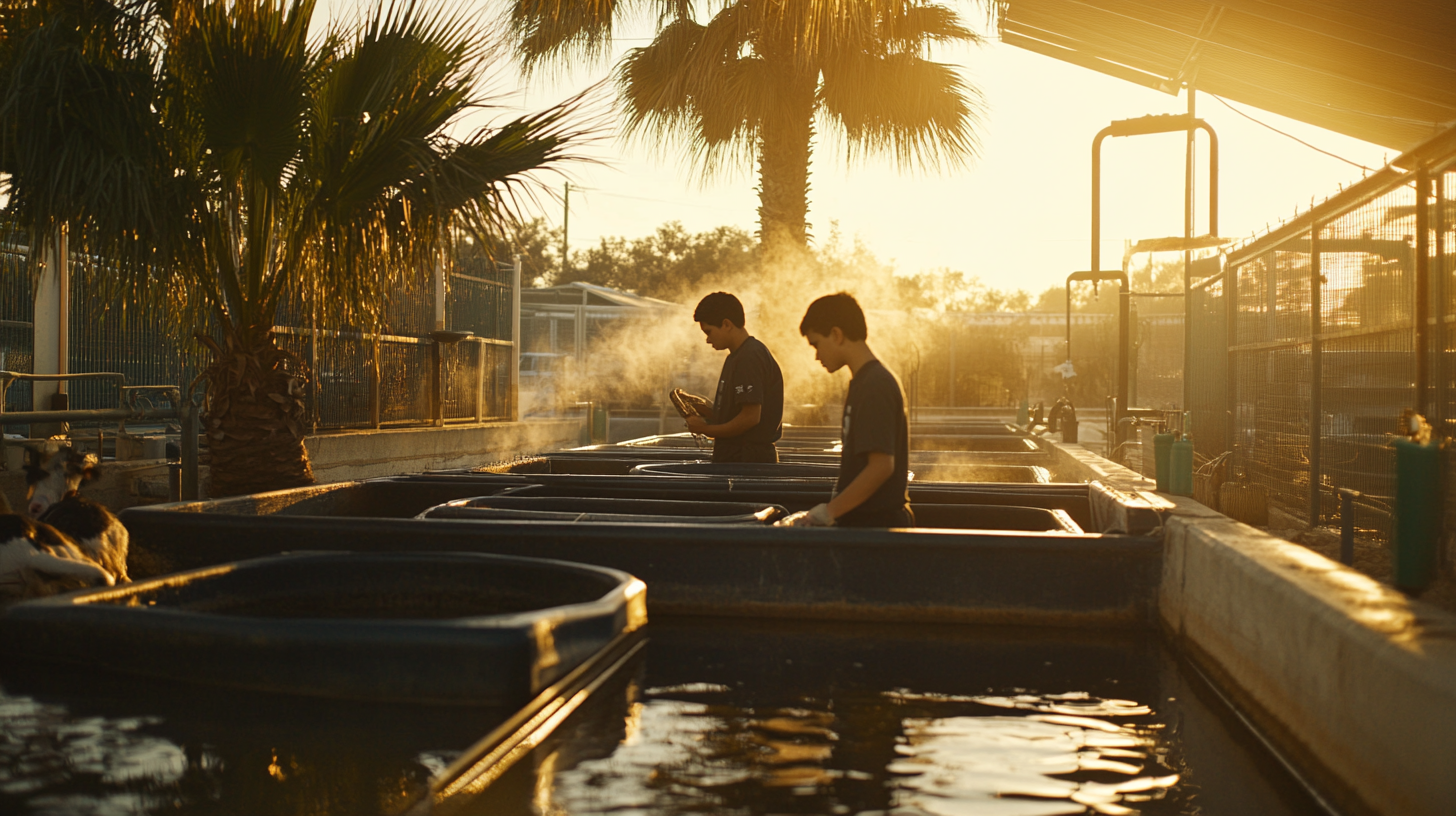McAllen ISD Ensures Warmth for Agricultural Program Animals Amid Cold Snap
McAllen Independent School District’s agricultural program has implemented additional measures to ensure the safety and well-being of its animals during the recent cold weather affecting South Texas. With temperatures dipping into the 50s and forecasts showing only mild relief, the district has strategically installed heat lamps and introduced sweaters to keep the animals warm. Currently, about 80 animals are being housed at the district’s agricultural facility, with space available for 20 more if necessary.
Responding to the Cold Front
As the cold front sweeps through the Rio Grande Valley, communities and organizations are taking various steps to protect both wildlife and domestic animals. This includes the recent rescue of nearly 200 cold-stunned turtles that washed ashore on South Padre Island. They are currently recovering at Sea Turtle Inc. This pattern of cold weather has put pressure on local institutions to ensure the safety of creatures vulnerable to the temperatures.
McAllen ISD is acutely aware of these pressures and has acted swiftly. “We want to make sure that our ag animals are safe and secure during this time,” said Monica Pena, the district’s Career and Technical Education (CTE) Coordinator. Her statement underscores the district’s proactive stance in securing the welfare of animals present at the facility—for instance, animals used by students involved in the district’s agricultural programs.
Impact on Valley Residents and Education
These measures taken by McAllen ISD reflect broader community interest issues affecting the Valley. The Rio Grande Valley, with its particular climate challenges, often requires flexible and adaptive strategies from local institutions. For the McAllen ISD, ensuring that the students’ projects and educational materials, such as livestock, are well-cared for speaks directly to their commitment to practical learning experiences that do not compromise on the well-being of animals.
This effort is particularly significant for students who do not possess the necessary infrastructure at home to care for these animals during such cold spells. McAllen ISD’s agricultural center becomes crucial as it provides a sanctuary, thereby ensuring continuity in the students’ educational activities. This arrangement not only maintains the educational timeline but also fosters a sense of security among Valley residents—knowing that educational and animal welfare needs are being met effectively.
Local Adaptation and Preparedness
This incident highlights the need for preparedness, especially among educational institutions, when facing unexpected temperature drops—a concern often echoed by Valley residents. Compared to regions accustomed to such chilly conditions, the RGV frequently confronts logistical challenges due to its usual warm and humid climate. Therefore, taking preventive measures now can serve as a blueprint for future incidents.
John Santos, a concerned parent from McAllen, notes the district’s proactive approach as a positive signal. “Seeing the district take decisive action to protect the animals gives us confidence that our children, the students learning there, are in good hands,” Santos said. This sentiment is widely shared among Valley residents appreciative of efforts to align educational initiatives with broader environmental and safety considerations.
Connecting to Broader Trends
Elsewhere in the Valley, this period of cold weather has had mixed ramifications. While educational projects continue to thrive under careful management, other sectors, like sports and outdoor community events, often face postponements or delays. For instance, the plethora of athletic events engaging Valley youth, such as those involving Edinburg Vela’s Kristopher Perez, often have to adjust around the weather. Similarly, local parks, such as those in Weslaco, are continuously upgrading to ensure facilities like inclusive swing sets can also withstand varying conditions.
Looking Ahead: Future Implications and Planning
The importance of strategic planning and adaptation in the region cannot be overstated, as the experience gathered from these events could guide future administrative decisions. The McAllen ISD’s initiatives may inspire similar educational districts to adopt early preventive measures tailored to the local environment—an effort essential for reinforcing educational biotechnology programs while maintaining ecological and animal care responsibilities.
Engagement with community members can also play a pivotal role in enhancing local impact strategies. Programs to inform and involve the community are instrumental in ensuring residents are informed of such initiatives and their potential benefits.
Overall, McAllen ISD’s swift response during this cold spell exemplifies effective planning and community responsiveness, serving as a valuable model for other sectors within the region. With several community events lined up, from engaging sporting activities to cultural exchanges like the Weslaco cheerleader’s participation in Rome’s New Year’s Day Parade, the district’s measures shine a light on how the RGV can continue to thrive amid weather-related challenges and beyond.







